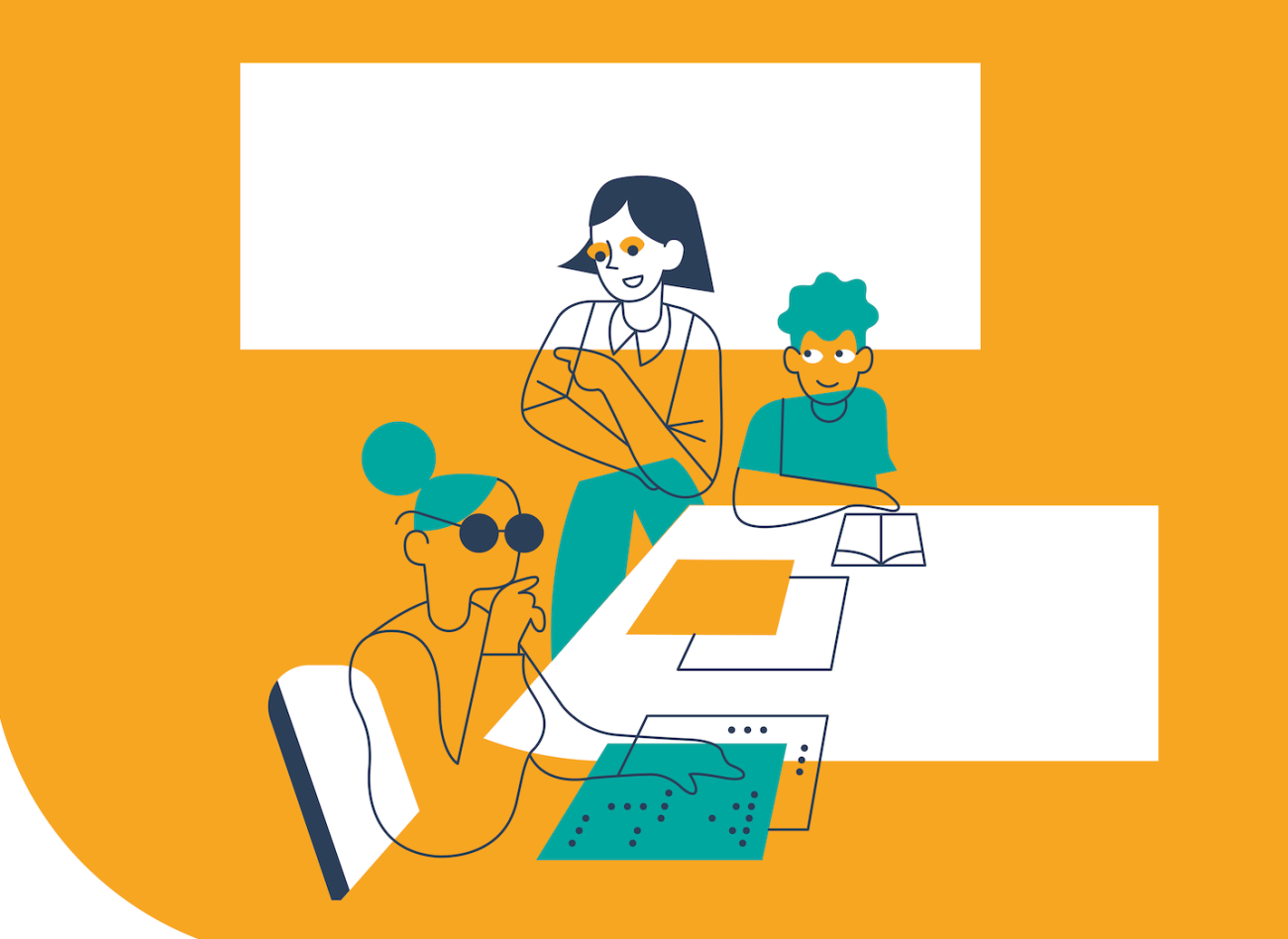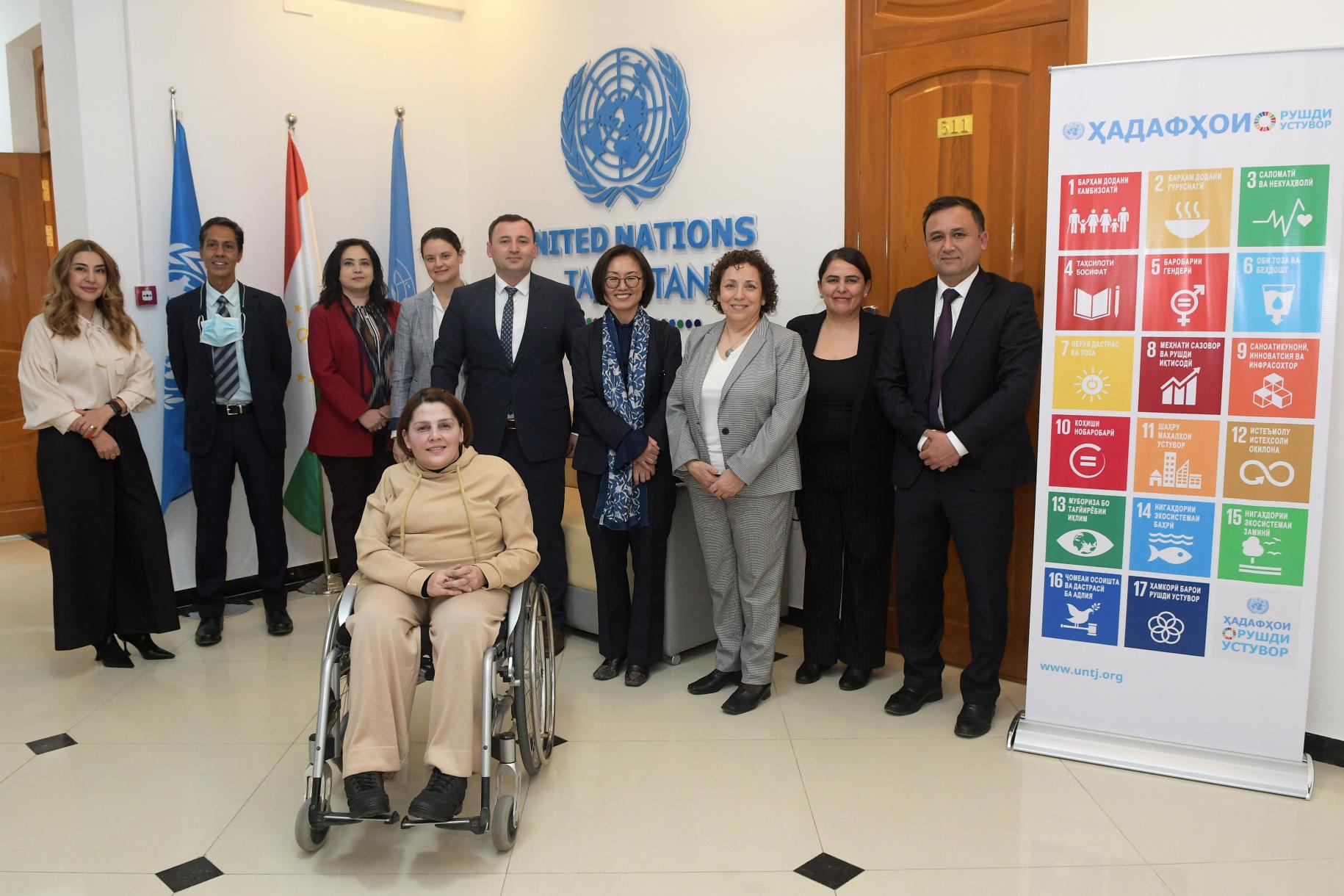Disability Inclusion Matters: Staff voice from Tajikistan

“Disability Inclusion Matters: Leaving No One Behind, Empowering Unity, Achieving More” is an internal RC system campaign aimed at celebrating and recognizing the crucial roles played by our colleagues with disabilities and the importance of each of us taking concrete steps to make the RC system more inclusive of persons with disabilities. This campaign is called for under the UN Disability Inclusion Strategy and outlined in DCO’s Disability Inclusion Strategy 2022-2025 to raise awareness and change attitudes and understandings around disability inclusion.
Farida Alibakhshova, Disability Inclusion Adviser, RCO Tajikistan
What does working for the RC system mean to you?
I started working at the UN in 2021 as a Disability and Inclusion Specialist with the RCO and since October 2022, I'm a Disability Inclusion Advisor. Being part of the UN is an opportunity to contribute to advancing disability inclusion through UN Country Team’s external and internal work in Tajikistan.
I have a physical disability, a neurological disorder that started when I was 14. I was able to finish secondary school, but after that I started using a wheelchair. The community I grew up in was 99% inaccessible to persons with disabilities. It was tough for me. However, despite the context, I didn't give up. With the support of my family and friends, I enrolled in the advanced online disability development programme at Queens University of Canada. After completing this programme, I worked with various regional and international organizations and enhanced my knowledge by participating in exchange programmes in the USA, Japan and South Korea.
When I first joined the RCO, I faced many challenges, but found it very rewarding. I'm happy to be a part of the RCO and to contribute to working with agency focal points to raise awareness of disability and include it into the work of the UN Country Team.
What do you find most exciting about your work?
Working for many years in the disability field and having a physical disability, I'm used to facing obstacles, as Tajikistan is an inaccessible country for persons with disabilities.
The main problem is behavioural barriers. These barriers prevent us from participating equally in all aspects of community life. These physical and informational barriers are ubiquitous (lack of ramps, elevators, tactile paving stones, signage, inaccessible transportation, access to assistive technologies, social support services, etc.). They are man-made.
The root cause of our problems is, therefore, people's attitudes. Our priority is to facilitate a paradigm shift. It's very encouraging that the RCO in Tajikistan is taking steps in this direction by including organizations of persons with disabilities in relevant consultations during the implementation of the Cooperation Framework and by promoting the creation of equity employment opportunities for persons with disabilities within the UN and in the mainstream labour market.

What advice would you give for advancing the inclusion of persons with disabilities?
Unfortunately, as I mentioned earlier, there is often a lack of awareness of disability and the human rights-based approach to disability. However, I have seen colleagues start to learn and commit to changing their behaviour, which will be a primary means of revising the system and making it inclusive for everyone. One day all areas of the UN's work will include persons with disabilities. I hope so. I believe that.
"The main issue persons with disabilities face are behavioural barriers generated by other people's attitudes. The UN’s priority is to facilitate a process of a paradigm shift. We must include organizations of persons with disabilities in relevant consultations during the Cooperation Framework’s implementation and promote equity employment opportunities for persons with disabilities within the UN."
I would advise my colleagues to understand, first of all, that diversity is the most beautiful aspect of our lives and that it includes persons with disabilities. Diversity is an enormous resource for development and contributes to achieving the SDGs. We need more tolerance and mutual acceptance to help us progress as a society.
Click here to learn more about how UN teams around the world are supporting persons with disabilities.













